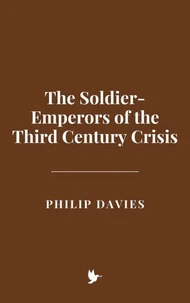The Social History of the Roman Republic offers an in-depth exploration of the complex social fabric that underpinned one of history's most influential civilizations. Philip Davies meticulously reconstructs the everyday lives, struggles, and aspirations of Romans-from patricians and plebeians to slaves and freedmen-illuminating the intricate interplay of family, religion, politics, and economy that shaped the Republic's identity.
Through richly detailed chapters, the book examines foundational institutions such as the familia and patronage networks, the pivotal role of military service in defining citizenship and status, and the turbulent social conflicts that culminated in transformative reform movements. It also delves into cultural expressions like literature and public spectacle, revealing how Romans negotiated their social realities through performance and rhetoric.
Drawing on primary sources including Livy, Cicero, Polybius, and archaeological evidence, Davies offers a nuanced narrative that balances elite and popular perspectives, highlighting tensions between tradition and change. The work situates the Republic's social dynamics within broader Mediterranean and political contexts, providing fresh insights into how social structures influenced Rome's political evolution and imperial expansion.
This book is essential reading for anyone seeking a profound understanding of Roman society beyond political narratives-a vivid portrait of a civilization whose social complexities continue to resonate through history.
The Social History of the Roman Republic offers an in-depth exploration of the complex social fabric that underpinned one of history's most influential civilizations. Philip Davies meticulously reconstructs the everyday lives, struggles, and aspirations of Romans-from patricians and plebeians to slaves and freedmen-illuminating the intricate interplay of family, religion, politics, and economy that shaped the Republic's identity.
Through richly detailed chapters, the book examines foundational institutions such as the familia and patronage networks, the pivotal role of military service in defining citizenship and status, and the turbulent social conflicts that culminated in transformative reform movements. It also delves into cultural expressions like literature and public spectacle, revealing how Romans negotiated their social realities through performance and rhetoric.
Drawing on primary sources including Livy, Cicero, Polybius, and archaeological evidence, Davies offers a nuanced narrative that balances elite and popular perspectives, highlighting tensions between tradition and change. The work situates the Republic's social dynamics within broader Mediterranean and political contexts, providing fresh insights into how social structures influenced Rome's political evolution and imperial expansion.
This book is essential reading for anyone seeking a profound understanding of Roman society beyond political narratives-a vivid portrait of a civilization whose social complexities continue to resonate through history.

 , qui est-ce ?
, qui est-ce ?